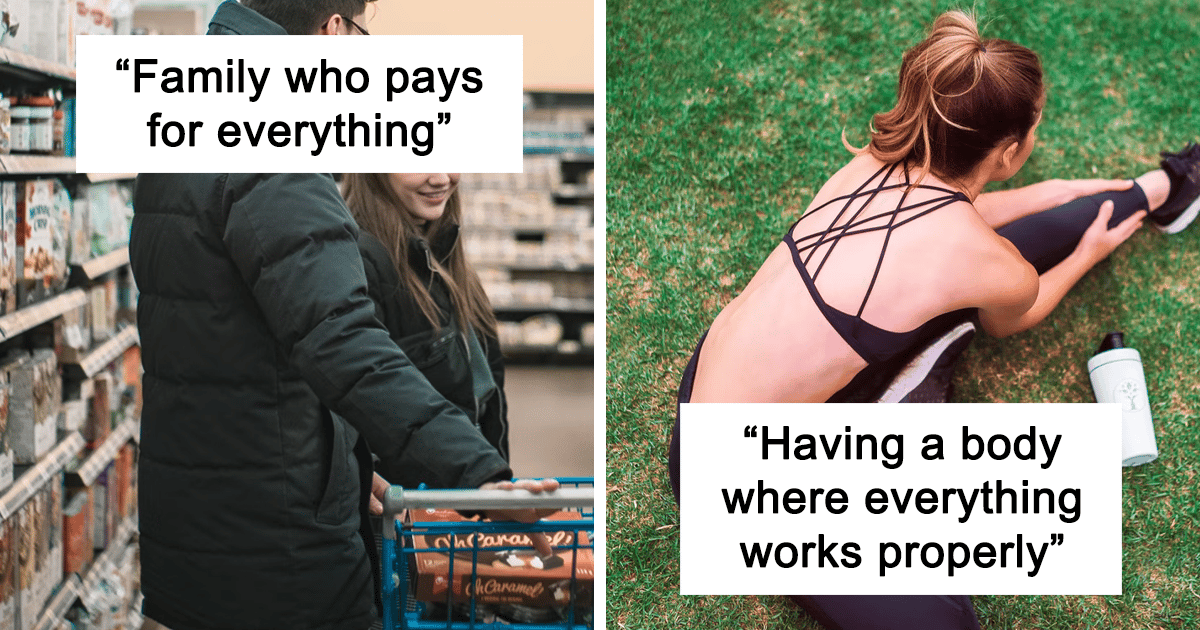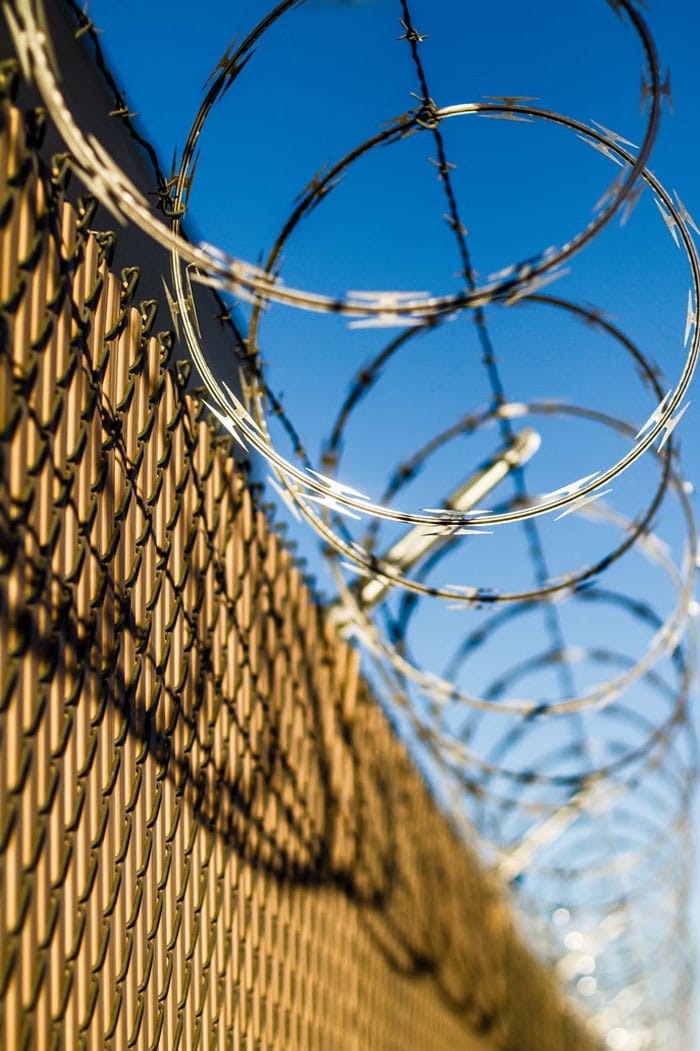What is privilege? Reddit users started sharing all the things that they believe most people don’t realize are actually privileges.
You’ll find the biggest privileges many of us are taking for granted below.
What do you think is the biggest privilege people tend to ignore? How do you think we can become more aware of the positives in our lives? Share your thoughts in the comments.
#1

“Having a body where everything works properly.”
#2

“Having emotionally, financially stable parents that care about and support you.”
#3

“Being vaccinated. People from underdeveloped countries like mines have people dying from preventable disease. My moms mother crossed a warzone after a devastating earthquake so my mom could get a smallpox vaccine.
Fitness expert Jack explained to Bored Panda that gratitude is vital and helps keep people grounded, no matter their financial situation, privileged or not.”
“Gratitude is incredibly important, I believe. I practice it every single morning as part of my routine,” he revealed to us that he practices what he preaches. This is why he recommends it to everyone.
“Having good mentors helps big time” when it comes to staying humble no matter how successful you are. “And also life usually has its way of humbling those who are too proud,” Jack said.
#4

“Buying groceries without having to carefully consider prices.
Get as much sleep as you need.
Being able to quit a job without fear of losing financial stability.
To have people around who can and will help.
Criticizing your own government.
Privacy. Lots of people don’t have that.”
#5

“The ability to actually be a kid when young. It’s heartbreaking how many children have to grow up / are hardened before they even hit puberty.”
#6

“Drinkable tap water
According to Jack, one thing that can definitely help all of us become more aware of the privileges that we have in life is morning gratitude journaling.”
“Write out 5-10 things you’re grateful for,” he suggested. That way, you can start the morning off strong and aware of just how fortunate you are in life. A far better alternative than waking up miserable because you ‘have to’ go to work, right?
#7

“Having a safe place to sleep. I’m very privileged to have a safe place to live, and I understood it more since the start of the pandemic. Not having a safe, stable, comfortable home has to be hell when you are on lockdown.”
#8

“Honestly living life without any form of mental illness. It’s becoming less and less common but a lot of the people that don’t realize just how lucky they are.”
#9
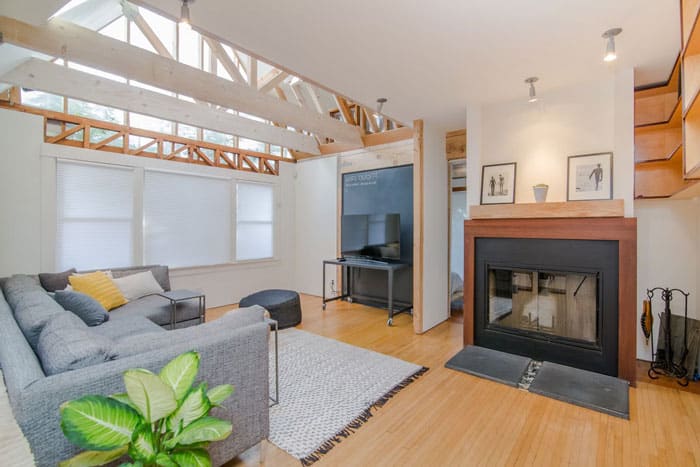
“Being able to sit in a house that is kept at a comfortable temperature all year long.”
Something else that might work for you is gratitude expression. “Send a message of gratitude to someone you’re grateful for,” Jack explained.
In Jack’s opinion, “it’s very easy nowadays” to take everything for granted. However, it all depends on your perspective. “And your perspective can be trained for gratitude.” In other words, change is possible. But we have to work towards it.
“The fitness expert also gave some advice that will serve anyone for decades to come. “Move your body! Figure out what you enjoy that involves movement and do it. It could be sports, hiking, walking around a mall, etc.,” he urged everyone to find a form of movement they personally enjoy the most.”
#10
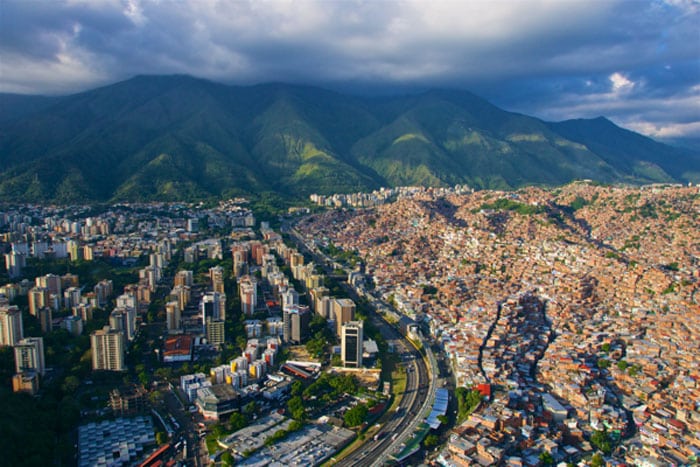
“I’m from Venezuela and here are the things American consider normal that is a privilege here:
Having a car: I’ve noticed that in the US even poor people have cars, here is pretty damn expensive to have and maintain a car and there’s no credit option.”
“Electricity every day: here power goes out a few times a week. In the US it only goes out when there’s a tornado or something like that.
“Sanitation: here nothing has an actual valid health certificate, unless it’s imported we don’t know if what we’re eating or the water we’re drinking is apt for consumption. Food in America has official certificates.”
“Having a phone: there’s rarely an American without a phone but for someone who makes less than 100 bucks a month is pretty hard to get a phone so there are many people who don’t have a phone here and I believe in many third world countries.””
“Living alone after 18: Here people can rarely afford it so they will live with their parents at older ages and it’s considered normal. Sometimes if the backyard is big enough they’ll just build a house themselves for when their children get married so they live there with their partner and children. Living alone at 18 or even in the ’20s is rather uncommon and a super privilege here.”
“Making fun of the president with no consequences: in the US I remember the media made fun of Donald Trump and it was ok nobody got arrested, but here if you make fun of the president on public TV or a famous YouTube channel you’ll go to jail for sure, they call it “hate crimes”.”
“Having animal services: As an animal lover I really hate that if you see animal abuse there’s not a number you can call and police won’t come, you have to literally take evidence and take it to a court or send it to a contact that works in the government, and according to the law the animal abuser just gets 48 days in jail (you can push for more but you’ll probably have to bribe the judge or have a friend in the government).”
“Clean streets: People here are worst than animals, the streets are littered everywhere except for the rich areas. In the US the streets seem super clean in general.”
“Buying clothes and items often: Here we spend many years using the same clothes as it’s expensive to buy all the time, but Americans will throw away a shirt or a pair of shoes they’ve used for a few months and say something like “it was completely destroyed already”.”
“Having good-looking houses: The houses of poor people here have black mold on the walls, the roof is asbestos or something similar, the draining system is almost rotten and the house structure is still standing by the sheer power of faith.”
“Eating expensive stuff: I’ve noticed Americans will complain a lot if they don’t have certain meals but here we just eat what we can afford, for example, things like honey, syrup, cheddar cheese, diet toasts, yogurt, chocolate and that kind of stuff are luxuries here.”
“Having sex: This one is kinda funny but it’s true, since Americans have cars and often live alone it’s easier for them to have sex. I’ve been struggling with this for a while because at home there’s your mom, your grandma, your siblings, your little cousins, etc. There’s literally no privacy, so people with more money are the only ones who can have sex whenever they want.”
“Walking outside at night: If you do that here you’ll likely get robbed or even killed, after 7-8 pm the streets are deserted. In USA or any other first world country unless you’re in a specifically dangerous area it’ll be fine to take walks at night.”
“Water everyday: in certain areas here people haven’t had water for weeks or even months. In the US water is expensive but at least everyone has it.”
“Travel papers: if you’re American or European you can quite literally travel anywhere with very little effort, getting a passport and VISA here is a whole struggle you’ll have to dedicate time, money and effort to get.”
I could go on and on but I wouldn’t finish today.
#11
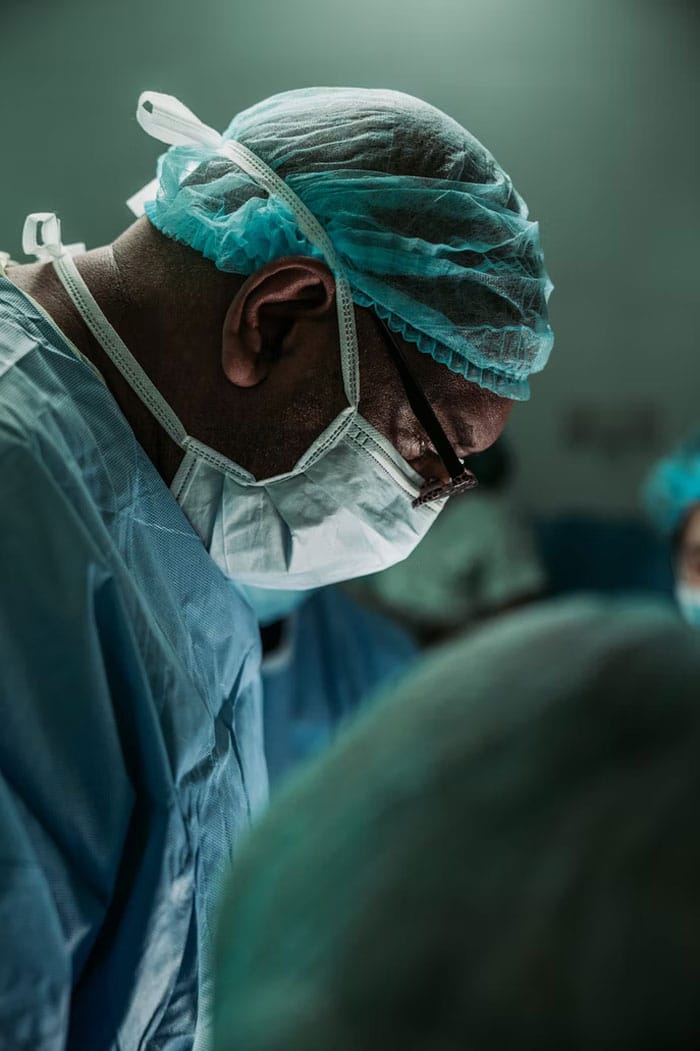
“Medical treatment”
#12

“The previous economic crash and the current Covid-19 pandemic have widened the gap between the haves and the have-nots. Eddy Ng, the Smith Professor of Equity & Inclusion in Business at Queen’s University, explained to us that the 2008 financial crisis restructured the economy while the pandemic has exacerbated inequality.”
“We had the global financial crisis which led to many millennials who were employed being displaced. When the economy recovered, it changed structurally, and many quality jobs were lost,” he said.
#13

“Hot showers. The best thing ever, which everyone takes for granted”
#14

“Knowing when your next meal will be”
#15

“According to the professor, after the 2008 financial crisis, there was an emergence of precarious jobs, the gig/sharing economy, and the rise of digital labor. As a result, income and social inequalities rose for those who weren’t able to join the new economy.”
“The expert said that some racialized groups like Black and Brown workers can fall into a poverty trap that they’re unable to get out of. In the professor’s opinion, better financial literacy won’t solve all the issues. “You need to have the resources to, for example, access training and education,” he told us.”
#16
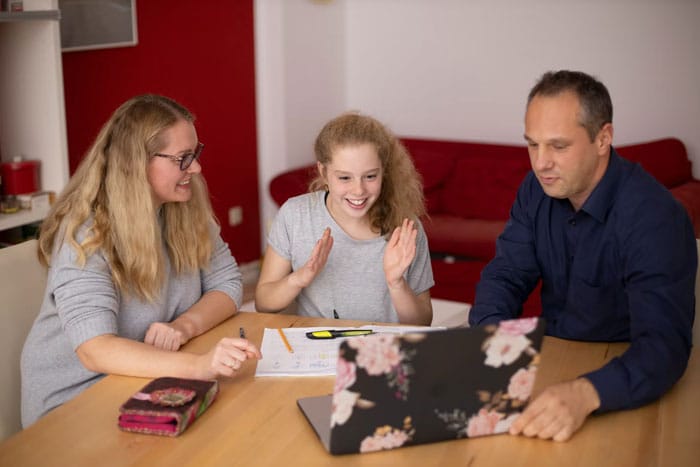
“Having caring parents who support you no matter what.”
#17
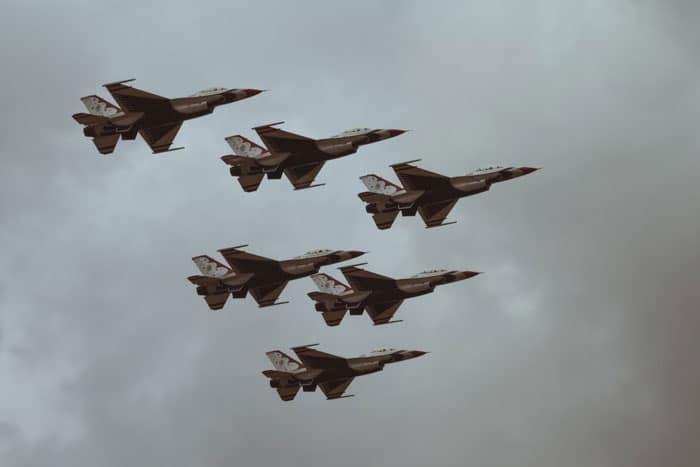
“Not being drafted into a high casualty war as soon as you are old enough to fight.”
#18
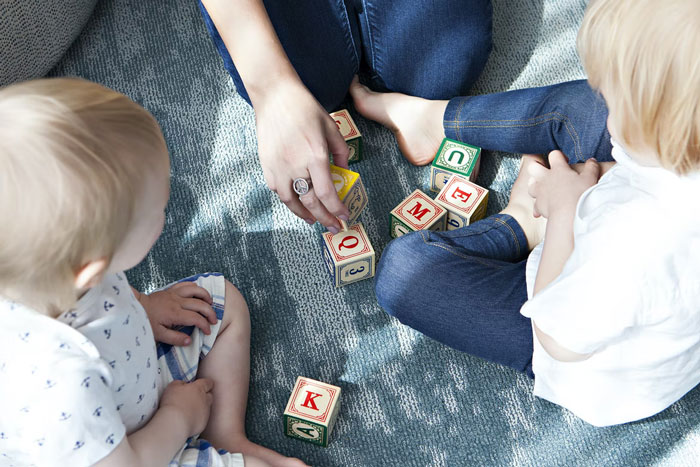
“Having healthy children.
Imagine having kids who’ll always need to be taken care of. Imagine having to worry about what will happen when you’re dead because you know that your child will never be independent or have a normal life.”
“This is one of my worst fears
The Covid-19 pandemic has deepened the divide between the rich and the poor, making problems even worse for many of us.”
“Workers work more hours with lower pay in order to survive. That leaves little time to accumulate the necessary resources for skill upgrades or retooling for the new economy. This is the poverty trap I alluded to,” Professor Ng explained.
#19
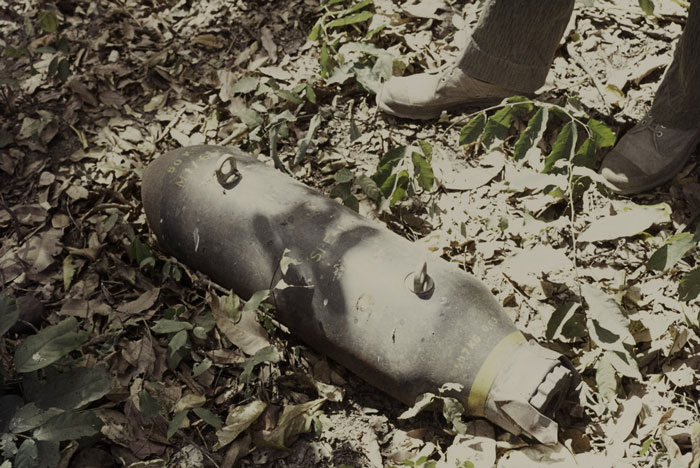
“The sky not dropping bombs on you”
#20
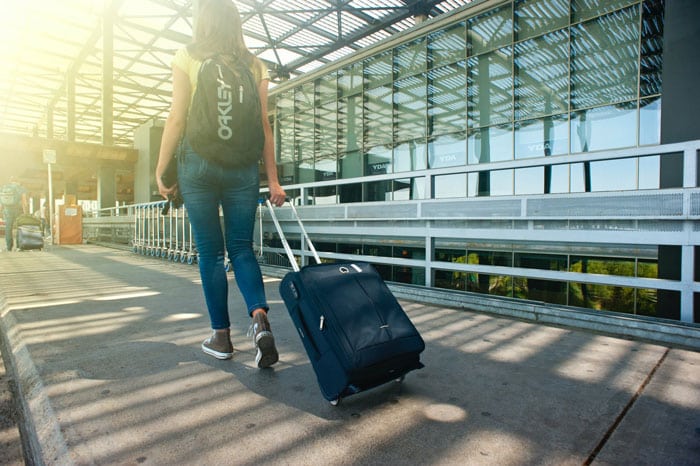
“Easy ability to travel internationally. The right passport will take you places.”
#21

#22

#23

#24

“Not having glass or barbwires over every wall, not having bars over every window, leaving the door unlocked at night and most likely being fine, etc.”
“Here in Argentina, we have our personal jails while the criminals roam the streets”
#25

#26
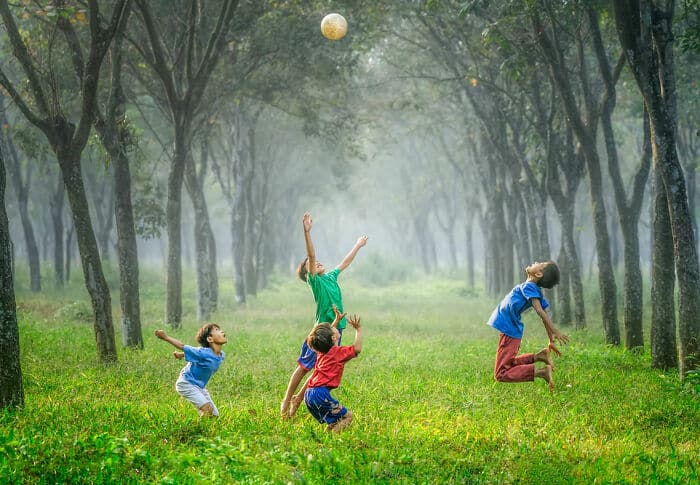
A happy childhood
#27
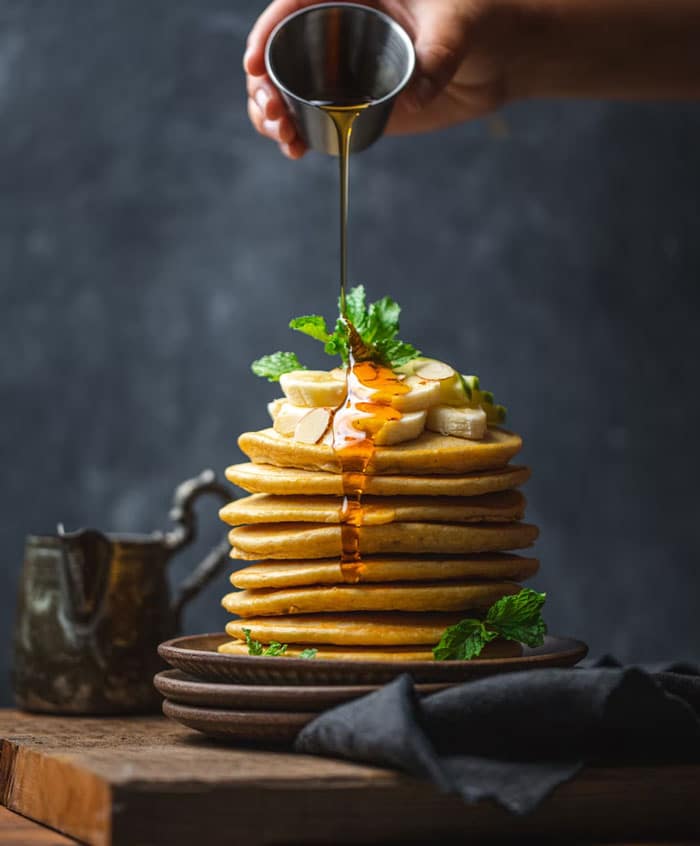
“Being able to ask “what are we going to eat” and not “are we going to eat” I cannot express how grateful I am to have a fridge full of food every day because I know that in other parts of the world some people go days without eating and sometimes have to resort to eating rotten food. It’s awful to think that such terrible conditions exist. I’m just so happy to be privileged enough to have better living arrangements. I just wish other Americans could see how lucky and privileged we actually are.”
#28

#29

#30

#31

#32

Being conventionally attractive.
#33

#34

“Free K-12 education and literacy in general.
K-12 meaning primary/elementary and secondary school, wherever you are from. From 5 years old to 17 or 18 years old. We call it K-12 in the Us (K meaning Kindergarten, through grade 12).”
#35



